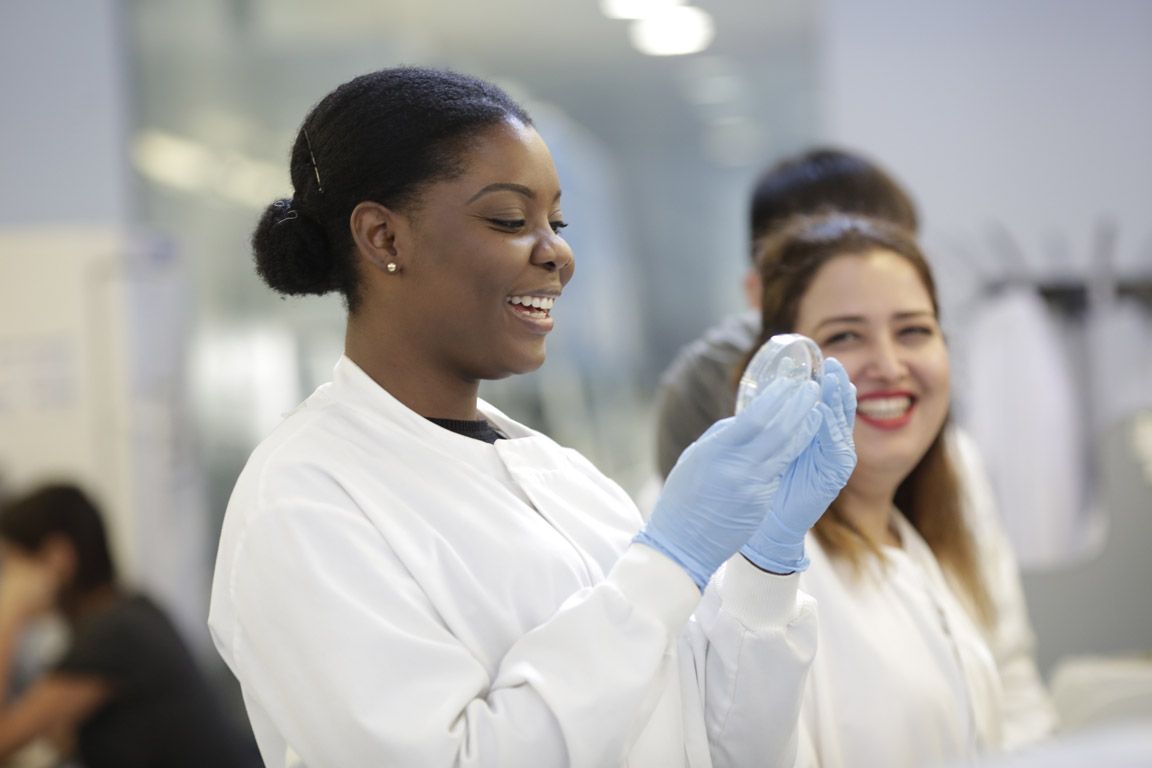
QMUL seeks new Knowledge Transfer Partnerships with life science companies
Knowledge Transfer Partnerships (KTPs) are a long-running and successful InnovateUK scheme for promoting company innovation and growth through academic collaboration. The scheme provides substantial benefits to companies including subsidised academic expertise, which often lead to increased company profits.
Queen Mary University of London (QMUL) wishes to build on its strong track-record of KTPs in science and engineering to develop – and is actively seeking innovative companies with which to partner.
How do KTPs work?
The three-way partnerships work by bringing together business, universities and qualified graduates to drive innovation for UK companies and organisations.
The scheme makes it possible for companies who need knowledge to hire academic experts at a highly subsidised rate. Large companies pay 50% of the project cost, while SMEs pay just 33%, with the remainder funded by InnovateUK.
The employee is known as a KTP Associate. This role is filled by a talented graduate who applies and embeds the academic knowledge into the company. Over the length of the project (12-36 months), the associate spends up to 80% of their time at the company, filling a knowledge gap and helping to deliver the innovation challenge.
Partnering for success
These partnerships have been shown to be highly beneficial for the companies involved. Figures from previous KTPs, reviewed three years after projects have ended, show that on average a KTP increases company profits (before tax) by £600,000.
QMUL has been involved in a recent KTP with a company called FormFormForm, an SME from East London working to develop next generation mouldable glues.
Their product, Sugru, is an innovative silicon composite that sticks to almost anything and then turns into a strong flexible rubber overnight. The KTP saw the Associate Dr Khai Nguyen work with the company to develop new safe and fast-curing formulations for these silicon composites. This enabled FormFormForm to extend the market for their product and identify possible new applications, from industrial adhesives for complex applications to 3D printing of biomedical chips that can help in the search for improved diagnostics and therapeutics.
These successes were celebrated at the KTP Best of the Best Awards 2020, where Dr Nguyen was recognised with the Future Innovator Award.
New opportunities for life science innovations
QMUL is now looking to build on its KTP expertise and develop new partnerships with companies developing biomedical, medical, and dental innovations.
The university has an outstanding research base in health sciences, being ranked 4th and 1st respectively in global research citations for medicine and dentistry (QS World University Rankings 2020).
QMUL hosts Genomics England’s 100,000 Genomes Project, East London Genes and Health, and The Genetics of Endocrine Tumours Study. And it has world class facilities at its fingertips, including a clinical trials unit, cancer tissue banks, genome sequencing, imaging, and bioinformatics.
QMUL is looking for company partners for KTP projects across biomedicine, medicine and dentistry, particularly in the following areas:
- Data science / bioinformatics / AI
- Genomics
- Cancer
- Dentistry (oral cancers, microbiome, periodontal disease, toothpastes)
- Heart and vasculature
- Immunology
- Rheumatology
- Neurodegeneration
- Skin
- Endocrinology.
If you are an SME or large company working in one of these areas who might be interested in partnering with QMUL in a health related KTP, please get in touch.
David Collier is KTP Manager at QMUL. You can email him at d.collier@qmul.ac.uk or ktp@qmul.ac.uk